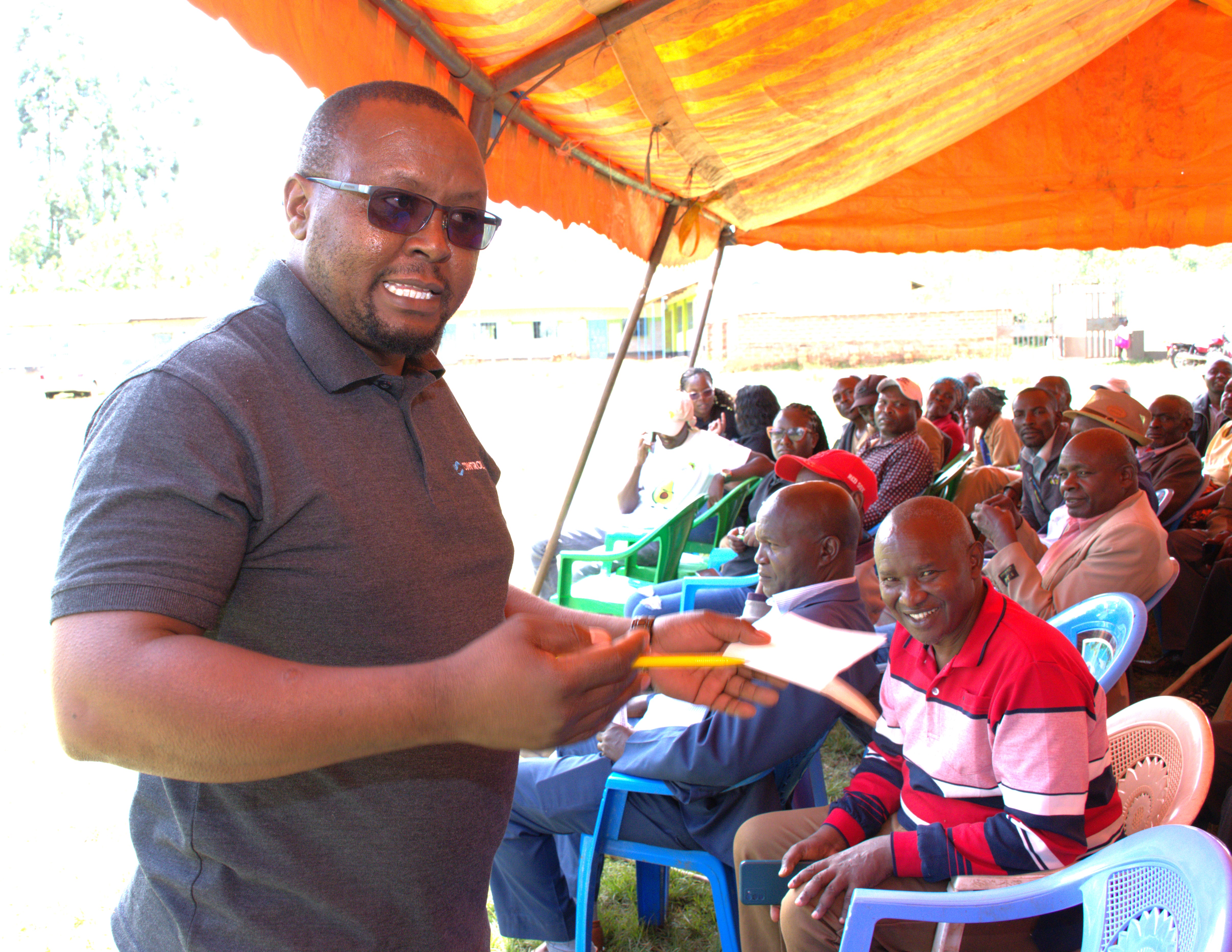

Local
farmers have been urged to leverage agriculture certification specialists in a
move aimed at enhancing their produce, maximizing profits, and increasing
market access both locally and internationally.
The
appeal was made by James Mureithi, Managing Director of Control Union Kenya, who noted that through certification,
farmers are equipped with the requisite information for proper compliance with
standards for both local and global markets.
He
further noted that the process helps improve farming practices and acts as a bridge
to foreign markets, thus reducing dependence on middlemen and consequently
scaling up prices for their produce.
“As
a certification body, we check if farms, producers, and exporters are in
compliance with specific market requirements, and once that is ascertained, we
issue them with a certificate that enables them to access the export market,”
said Mureithi.
“Once
farmers are empowered and can practice the requirements of the standard, they
can get buyers who offer better prices and consistent markets,” he added.
Control Union, a certification body with operations across
Africa and beyond, provides audits and certification for standards, organic,
and regenerative agriculture.
Speaking during an avocado farmers' engagement forum in Bomachoge Borabu, Kisii County, Mureithi noted that
to improve quality and realize better returns for farmers in the fruits and
vegetable value chains, Control Union took a different approach to
certification through a program dubbed Control Union Mashinani.
“We
have farmers in our country who know that their products are harvested and sold
in the export market, but they don’t know what happens between the time the
product leaves their farms and when it reaches the market. We developed this
program so that we can equip farmers at the grassroots level with information
on what is required for their produce to be accepted in both domestic and
international markets,” he said.
Mureithi
added that they are currently working with avocado farmers in Kisii, where they
seek to empower them through training on sustainable production and compliance
with market standards.
“We
chose avocado because this is Kenya’s green gold, and we know that demand is
increasing compared to other fruits in the market. Avocado also does well in
Kisii, and we have realized that farmers here have not fully embraced avocado
farming. That’s why we brought on board experts in the avocado value chain so
that together we can sensitize farmers on sustainable agricultural production
of the fruit,” he explained.
He
called for collaboration between county and national governments, along with
stakeholders, to ensure farmers access quality seedlings, technical know-how,
and fair international market opportunities.
Evans Nyakoni from the Riaima Empowerment Centre for Sustainable Agriculture (RECSA),
whose organization has partnered with Control Union Kenya in the avocado
project, said RECSA will act as a focal point for coordination between farmers
and certification experts.
“Without
certification, these products cannot be taken for export. We will work with
Control Union to inspect farms, ensure compliance, and facilitate access to
quality seedlings. We have fertile soil and good rainfall, but what lacks is
skill, and to address that, we will work closely with farmers through groups to
ensure their farms meet certification standards,” said Nyakoni.
Joel Ong’angi, a local farmer from Borabu Bomachoge, termed
the program a game changer in his venture, adding that it is already bearing
fruit.
Ong’angi,
who transitioned from maize to avocado farming in 2023, has planted about 1,000
trees and credits recent training by Control Union for improving his farming
practices.
“I
learnt that I planted some of my trees too close to each other, and I’ll have
to space them properly for better yields. I have also prioritized the use of
compost manure instead of inorganic fertilizer, which has enhanced my organic
farming,” Ong’angi said.
He
added that he has been encouraging other farmers in his community to join the
avocado venture.
“I
have been encouraging my fellow farmers to grow avocados, and several have
heeded the advice,” he said.
Through
the Control Union Mashinani and RECSA collaboration, farmers in Kisii
stand to gain not only from technical training and certification but also from
an organized route to premium markets, positioning avocado farming as a viable
and sustainable source of income for the region.













